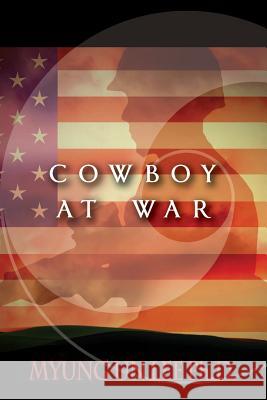Cowboy At War » książka
Cowboy At War
ISBN-13: 9781494734473 / Angielski / Miękka / 2014 / 190 str.
My book is a narrative nonfiction of romance as well as thinking, a real story which took place virtually when Ms. Jin and Dr. Ahn toured in Australia and New Zealand together with other tourist party. During our journey, there occurred so many things of interest among our party members. As our party included some intellectuals like professors, a medical doctor, a couple of Vietnam War veteran(retired officer), two female teachers, and a writer as well, we would hold a discussion with one another largely over the matter of 'U.S.A. in Asia' in this pending era of G2, the United States and China... Of the seven kinds of traditional Chinese tactics and strategies, the art of war by Sun-tze has been called the best, a magnum opus, and the so-called 'living national treasure of China'. In both West and East alike, the spiritual pupils of Sun-tze tactics and strategy have been called Napoleon, Erwin Rommel(Germany), Kong-ming(China), Mao Zedong, Peng Teh-huai(China: Korean War), Ho Chi Minh & Vo N. Giap(N. Vietnam: Vietnam War). In the Korean War, General of the Army Douglas MacArthur, the great war hero of historic Battle of Inchon on 15 September 1950, was defeated by Peng Teh-huai, a subordinate of Mao, unexpectedly in north Korea; and he was dismissed abruptly from the service as 'Commander in Chief' of the UN Forces by Mr. Truman on April 11, 1951. Despite its unrivaled hardpower of military strength on the globe, Uncle Sam has fought against heavy odds especially in the Orient ever since the end of the World War II. And then, what's the fundamental reason for that ? How come an American cowboy has got bogged down in the quagmires again and again ? The reason lies in the fact that leaders in the Orient have fought against U.S.A. with their traditional art of war by Sun-tze, the oldest textbook for guerrilla tactics of irregular warfare in Asia that is based on Lao-tze's natural philosophy of flowing water: China(Chiang Kai-shek vs. Mao Zedong), Korea, Vietnam, Afghanistan & Iraq, U.S. trade war with Japan, and even north Korea... They have used it for both military and business or management as well...The national archetype of American cowboy people can be said to be their never-ending search for things new and unknown-'Going ahead ' with their respective 'American dream' in mind. Through the spiritual rise with his first cowboy esprit in mind, centered on puritanical values and morality in itself, an American cowboy could safely lead and rule the world('Manifest Destiny') also with little fighting, by trying to take hearts and minds of other people(soft power), just as said by Sun-tze in his ancient art of war.
Zawartość książki może nie spełniać oczekiwań – reklamacje nie obejmują treści, która mogła nie być redakcyjnie ani merytorycznie opracowana.











